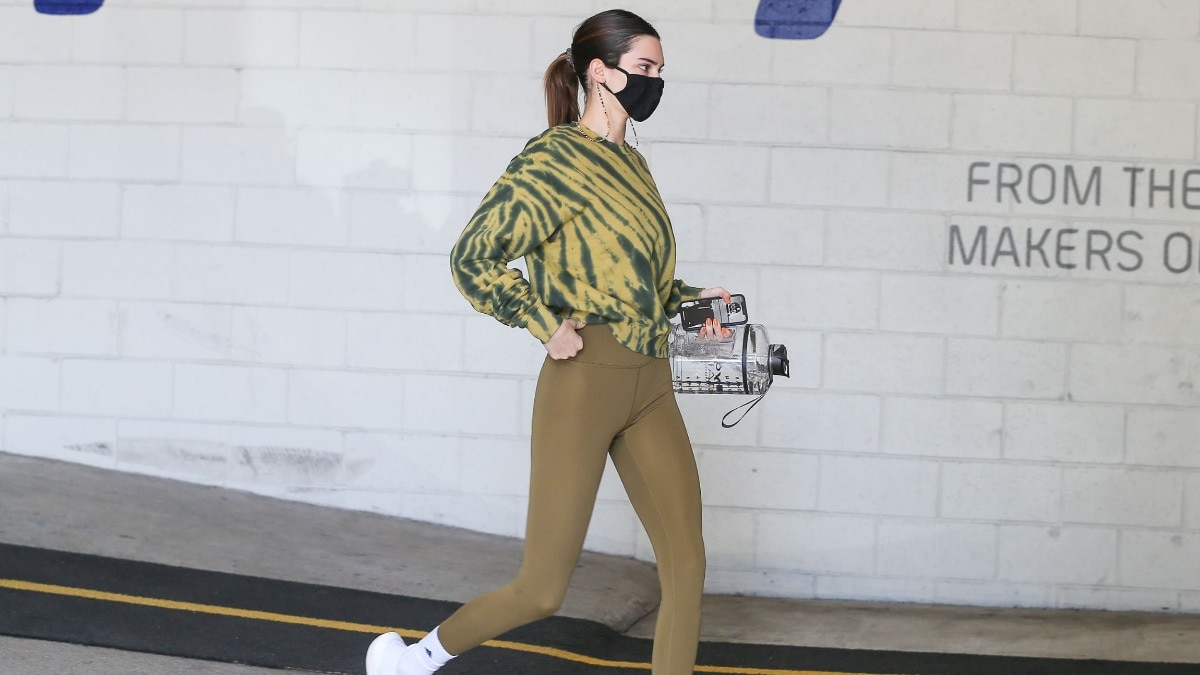How having friends at work can make you better at your job
From preventing burnout to giving no-nonsense advice, there’s more to having close colleagues than just someone to go on a coffee run with


From The Bold Type’s Jane, Sutton and Kat, to Max and Caroline in 2 Broke Girls, many sitcoms have followed the joys (and dramas) of workplace friendships. However, having a ‘work wife’ or a good group of tight-knit colleagues is increasingly becoming the stuff of television fantasy.
Research from LinkedIn’s Workplace Confidence Index has found that over half of UK employees (52 per cent) don’t have any friends at work. This is not a belligerent coldness on behalf of those respondents, as the research shows we do want an office clique—with 42 per cent of us looking to forge new workplace relationships—it's just proving harder to find. It’s an issue that is being felt more acutely among younger workers; 61 per cent of Gen Z report wanting work friends compared to 31 per cent of baby boomers, with women seemingly seeking connections at work more than their male counterparts.
“Workplace friendships can make all the difference in how we feel day to day,” explains Charlotte Davies, a career expert at LinkedIn. “Work friends give us a sense of belonging. Without them, it’s easy to feel alone, which can impact your happiness and job satisfaction.”
If we’re all craving that connection, then what is behind this dwindling of workplace friendships? It may be, in part, a hangover from the pandemic and its subsequent lockdowns, which saw many office roles switch to hybrid or entirely remote working (it’s thought one in every five jobs in the UK now offers flexible working, while 14 per cent can be entirely done from home). While there are numerous benefits to a more flexible approach to work, one of the few downsides is that it can leave employees, particularly younger new starters or those embarking on their first job, feeling isolated or disconnected from colleagues. Research by the British Red Cross found that three-quarters (75 per cent) of people who moved to a home or hybrid-working model said the change had affected their work relationships.
But workplace pals offer more than a solution to loneliness; Davies explains that your career clique can work as a vital “support system”—and even make you better at your role.
“Having a trusted friend at work can be like having a personal cheerleader right in the office,” she says. “Whether it’s celebrating your wins or helping you work through dilemmas, these friendships are about more than just emotional support—they can genuinely boost your performance.
“Candid feedback from a friend is often more helpful because it feels safe. Plus, sharing your challenges and successes with someone close helps you feel more confident in your abilities. When you celebrate a win with a work friend, it gives you that extra boost to tackle your next task with even more energy.”
Friendships at work can also be beneficial for your health too; with one in three UK employees feeling “stuck” or “burned out” in their current roles, the colleagues you can vent with on Slack may become a lifeline.
“Having a close colleague to lean on when things get tough can make all the difference,” Davies adds. “Work friends are often the first to notice when you’re feeling overwhelmed and can offer advice, support, or just a shoulder to lean on. They’re the ones who can help you tackle small problems before they snowball into something bigger. It’s this emotional support that can help you manage stress and avoid burnout."
Of course, not all workplace relationships are beneficial, with some behaviours between friends proving harmful. A work friend who you are spotted regularly sharing gossip with at the water cooler may prove detrimental to your career; a study of 1,400 participants conducted by the University of Leeds business school found that those perceived to be ‘office gossips’ were viewed in a derogatory light when compared to their colleagues.
“An unhealthy work friendship can sometimes blur the lines between personal and professional in a way that feels uncomfortable,” Davies says. “For example, if your work friend becomes overly competitive, constantly trying to one-up you or downplaying your contributions, it can be damaging.”
“Another sign is if they fail to respect professional boundaries, making it hard to maintain the right level of professionalism. If this happens, it’s important to address the issue in the workplace to protect both your work environment and your friendship outside of it. Setting clear boundaries early on can prevent this.
“A healthy work friendship is built on trust, mutual respect, and a bit of fun! These friendships are all about creating a safe space where you can be more open and honest—whether it's brainstorming solutions, celebrating wins, or sharing a laugh.”
So, how do we go about building bonds with colleagues, particularly if our office days are few and far between? Davies advises scheduling regular in-office days with a colleague, so you can catch up over coffee or take a lunchtime walk together—but emphasises that these bonds can also be built online, too.
“Reach out for virtual coffee or a light chat,” she says. “While you might keep some professional boundaries, the connection feels more personal. You could share insights about your working life and maybe even a bit about your personal life, creating a bond that makes work more enjoyable and supportive."
Lead image credit: Getty Images
Also read: Consult a coach: How do I prepare to step up at work?
Also read: From smart casual to sweatpants: How workwear style has changed










